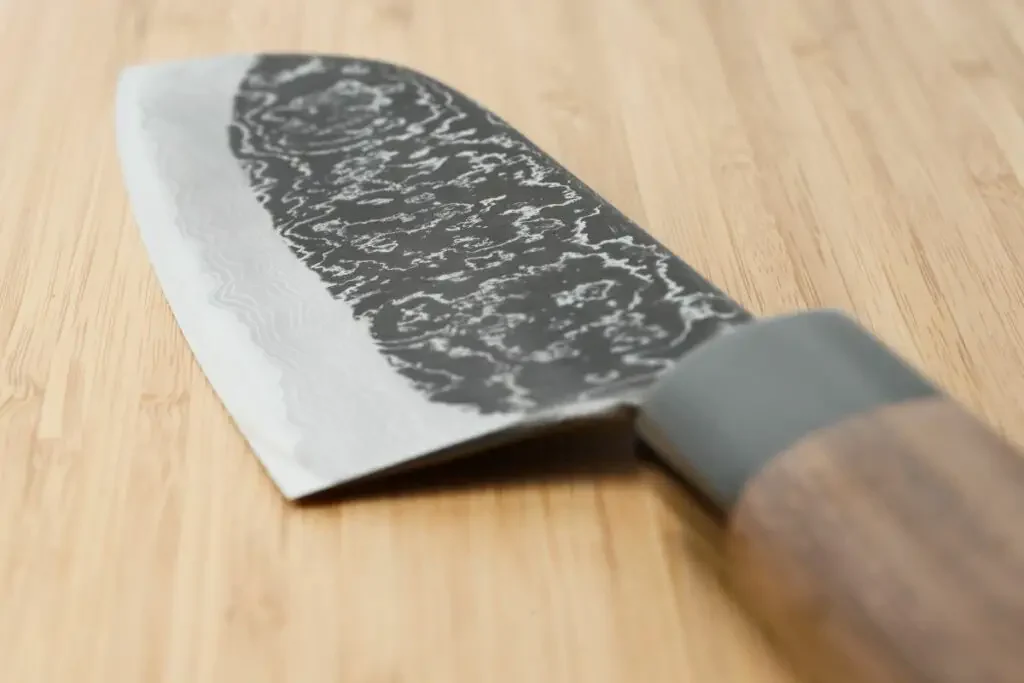As an Amazon Associate, we earn from qualifying purchases with no additional costs for you.
Japanese knives are well known for their superior quality and sharpness, but how does this translate into the longevity of these knives? The high cost of purchasing Japanese knives invites the question of how long you can expect these knives to last.
Japanese knives can last for years, and if they are given the proper care and maintenance, they can last for decades. The quality of the knife plays a big role in its longevity, so buy the best knife your budget allows and give it the maintenance and care it deserves to maximize its longevity.
We will investigate and discuss the factors that affect the lifespan of Japanese knives and provide some insights into the different types of Japanese knives and how long they typically last. We’ll also offer some tips on properly caring for and maintaining your Japanese knives to help extend their lifespan.
If you are interested in checking out the best Japanese knives (made by Hayate Yoshihiro) we recommend and use, you can find them by clicking here (Amazon link).
What Is The Lifespan Of Japanese Knives?

Japanese knives are revered worldwide for their superior quality and exquisite craftsmanship. From sushi chefs to home cooks, many people prefer Japanese knives over their Western counterparts for their sharpness and precision, but how long can you expect a Japanese knife to last?
Whether you are an amateur, professional, or a home cook, understanding the lifespan of your Japanese knives can help you make informed choices about which knives to buy and how to properly care for them.
Given the substantial investment the price tag of Japanese knives requires, you need to know the expected lifespan of these knives. So, let’s get the ball rolling and explore the world of Japanese knives and their longevity.
TIP: Japanese knives are not a cheap purchase! Have you ever wondered if your expensive knives retain their value? Find out here!
Do Knives Hold Their Value? Main Factors & Knife Examples
Factors Affecting Japanese Knife Lifespan
Many factors that affect Japanese knives’ lifespan also apply to other knives, so as we explore these aspects, you can also evaluate other knives in your kitchen.
The lifespan of a Japanese knife is influenced by the following main factors.
- The quality of materials used in the blade. Japanese knives are typically made from high-quality materials such as high-carbon steel, VG-10 steel, and Damascus steel. The quality of the materials used in the blade can significantly affect the knife’s lifespan, as high-quality materials are generally more resistant to wear and corrosion.
- Frequency of use. Regular use of a Japanese knife will reduce its lifespan, but the knives are made to be used, so this is an unavoidable outcome. If you use your knives less frequently, they will last longer, but don’t let this stop you from using your knife at every opportunity.
- Frequency of maintenance. Proper maintenance, such as sharpening and oiling, can help extend the knife’s lifespan. Correct cleaning of the knife is also a factor that will affect the knife’s longevity. Always hand-wash your knives and dry them before storage.
- The sharpness of the blade. The sharper the blade, the less force is required to cut through food, placing less stress on the edge and the steel. A sharp blade will also maintain its edge longer, limiting the need for frequent sharpening, which can wear down the blade faster.
- The angle of the blade. The angle of the blade’s edge can also affect its lifespan. A sharper angle may result in a sharper edge, but it can also make the blade more delicate and prone to damage. A wider angle may not be as sharp, but it can make the blade more durable and better suited for heavier use.
- Correct sharpening. A Japanese knife is a precision instrument that requires proper knowledge about knife sharpening and edge geometry to establish a quality cutting edge. Improper sharpening techniques can damage the edge and the steel and reduce the knife’s lifespan.
- Knife storage. Storing your Japanese knife properly so that it does not become damaged by other knives or kitchen implements is important in knife longevity.
- Use the knife for the right purpose. Japanese kitchen knives are designed for specific roles in the kitchen. If the knife is used outside of its intended purpose, there is the risk of damaging or breaking the knife.
By considering these factors, you can better understand how to care for your Japanese knife and choose a knife that best suits your needs and preferences.
TIP: If you are interested in buying a Japanese knife, we recommend these knives (Amazon links):
- Santoku: Yoshihiro NSW Hammered Damascus Santoku
- Gyuto: Yoshihiro VG-10 Hammered Damascus Gyuto
- Nakiri: Yoshihiro Hammered Damascus Nakiri
Tips For Extending The Lifespan Of Your Japanese Knives

Purchasing a Japanese kitchen knife is only recommended for someone who understands the quality of these knives, the care they require, and who is prepared to put time and effort into their knife maintenance.
Proper care and maintenance are key to extending the lifespan of your Japanese knives. I have compiled some guidelines to help you care for your treasured knife and keep it in service in your kitchen for years.
- Hand wash your knives. Never put your Japanese knives in the dishwasher. The high heat and abrasive detergents can damage the blade. Instead, hand wash your knives with mild soap and warm water, and dry them immediately after washing.
- Store your knives properly. Store your Japanese knives in a knife block or on a magnetic knife strip to protect the blade and prevent it from dulling. Avoid storing your knives in a drawer where other kitchen tools can damage them.
- Sharpen your knives regularly. Regular sharpening will help maintain the blade’s edge and prevent dullness. Use a high-quality series of sharpening stones to sharpen your knives, and follow the manufacturer’s instructions.
- Don’t sharpen the knives too frequently. Unnecessary sharpening can be as detrimental to the knife as not sharpening regularly enough. Sharpening your knife when it is not necessary removes steel from the blade and reduces its lifespan.
- Have your knives professionally sharpened. If you don’t know how to sharpen knives properly, it would be better for your Japanese knives to be sharpened by a professional until you master the skill yourself. Practice your sharpening skills on your older, less expensive knives.
- Use an appropriate cutting board. Always use a cutting board when using your Japanese knives, and avoid cutting on hard surfaces like glass or metal. This can chip or damage the blade and cause it to dull more quickly.
- Oil your knives. Applying a thin layer of food-grade mineral oil to the blade can help protect it from rust and corrosion. Simply apply a few small drops of oil to the blade and wipe it off with a clean cloth.
Following these simple but useful tips can help extend the lifespan of your Japanese knives and keep them in top condition for years to come.
BTW: If you want to know more about Japanese and other knives and their sharpening, check out the books listed above. These books are recommended by professional sharpeners and knife makers (Amazon links):
- Japanese Kitchen Knives: Essential Techniques and Recipes
- The Knifenerd Guide to Japanese Knives
- Knife: The Culture, Craft, and Cult of the Cook’s Knife
- Sharp: The Definitive Introduction to Knives, Sharpening, and Cutting Techniques, with Recipes from Great Chefs
Conclusion
Japanese knives are renowned for their sharpness, durability, and precision.
The lifespan of a Japanese knife can vary depending on factors such as the knife type, quality of materials, and frequency of use and maintenance. With proper care and maintenance, a high-quality Japanese knife can last for several years, if not decades.
Investing in a high-quality Japanese knife can be worthwhile for any home cook or professional chef. It can make your cooking tasks easier and more enjoyable, and the knife can last for years with proper care and maintenance.
Whether you’re using a Deba knife for filleting fish or a Gyuto knife for chopping vegetables, a well-maintained Japanese knife can be a valuable addition to any kitchen.
TIP: Looking for the ideal Japanese kitchen knife for processing vegetables? We have a selection of the best knives to consider for this kitchen task!
The 8 Best Japanese Knives For Chopping Vegetables
